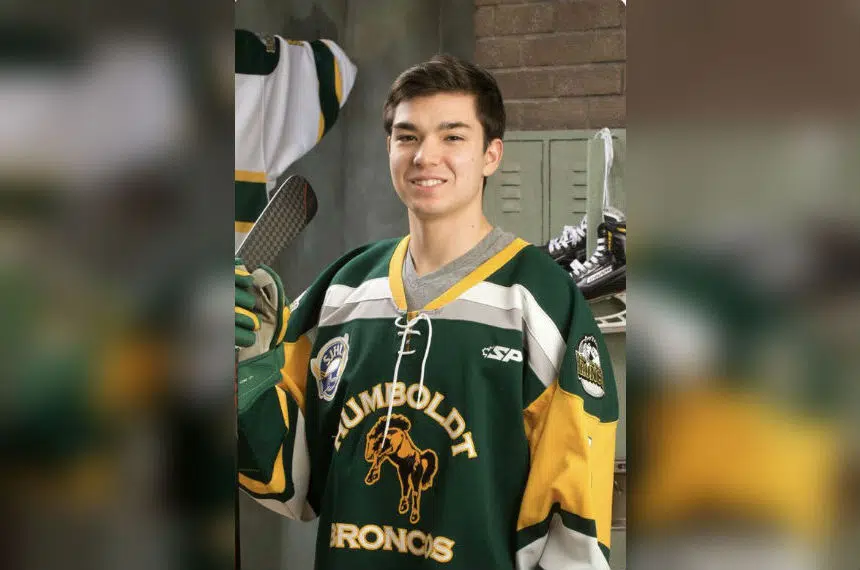By Drew Stremick
Four years ago, Humboldt Broncos defenceman Logan Boulet lost his life — and ultimately saved six others with the selfless act of being an organ donor.
Since then, more than 18,000 Saskatchewan residents have signed up to become organ and tissue donors.
Dr. Michael Moser, a surgeon who teaches in the College of Medicine at the University of Saskatchewan, said because of the so-called Logan Boulet Effect, the situation for transplant teams in Saskatchewan has improved.
“There’s been a lot of positive steps taken in transplantation. We feel very much supported, from things like the registry to having a separate organ donation team,” Moser told Gormley on Thursday — Green Shirt Day in Saskatchewan.
According to Moser, the number of people who can benefit from one donor is significant.
“One deceased organ donor can actually provide organs to save the lives of up to eight people,” Moser said. “They can also donate tissue, bones, skin and corneas and that sort of thing, which they say has been able to help up to 50 people.”
People who need organs and who are on waitlists can be found all across Canada, and Moser says transplant teams try to reduce how far organs need to travel.
“Organs that come from people who donate, who are from Saskatchewan, we try as much as we can to place them into the people of Saskatchewan who are on the waitlist,” Moser said.
Moser also addressed the common misconception of being too old to donate organs or tissue.
“There was a donor in Canada, she had made it clear during her life that she wanted to donate her organs,” Moser said. “She lived to the ripe old age of 93 and the family, wanting to honour her wishes, said, ‘I don’t think any of her organs are going to be useful to other people.’
“Doctors evaluated their loved one and they said, ‘She might be 93 but her liver is just fine for donation.’ It was fine for transplantation, and was put into someone a quarter her age.
“Have that chat. Don’t assume that you’re too old. If 93 isn’t too old, then it will all come down to that evaluation on a case-by-case basis.”
Moser says having conversations about one’s wishes is extremely important.
“Even though the sticker is on the health-care card, even though there’s something in the registry, if (family members) don’t sign that consent, there’s nothing we can do to honour that person’s wishes to donate those organs,” Moser said.
Anyone interested in becoming an organ or tissue donor can register on the provincial government’s website.











